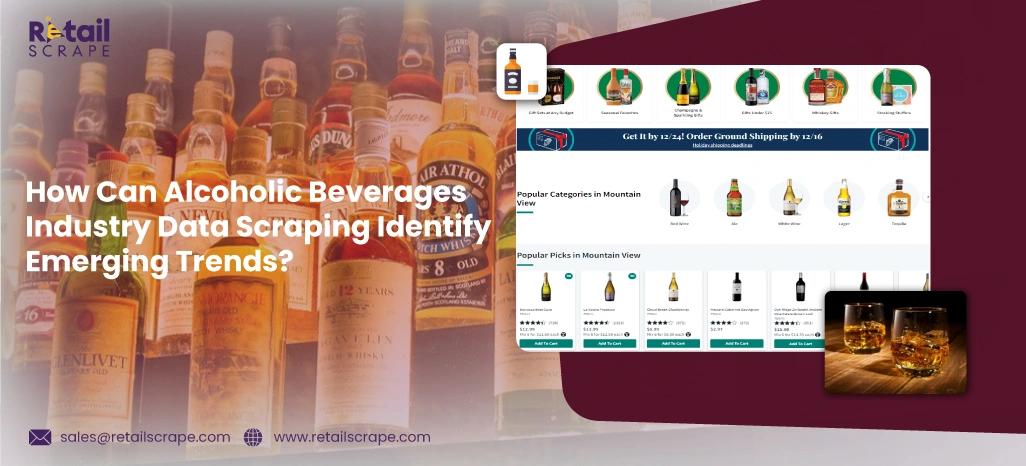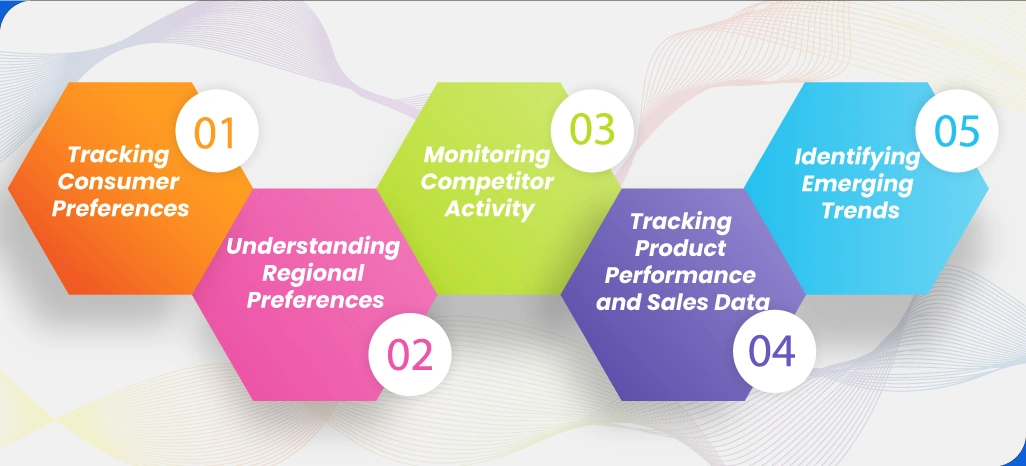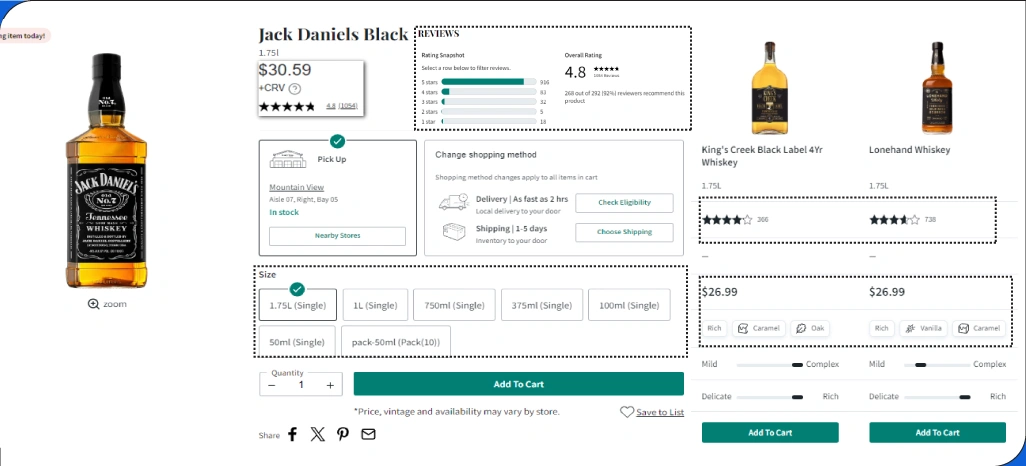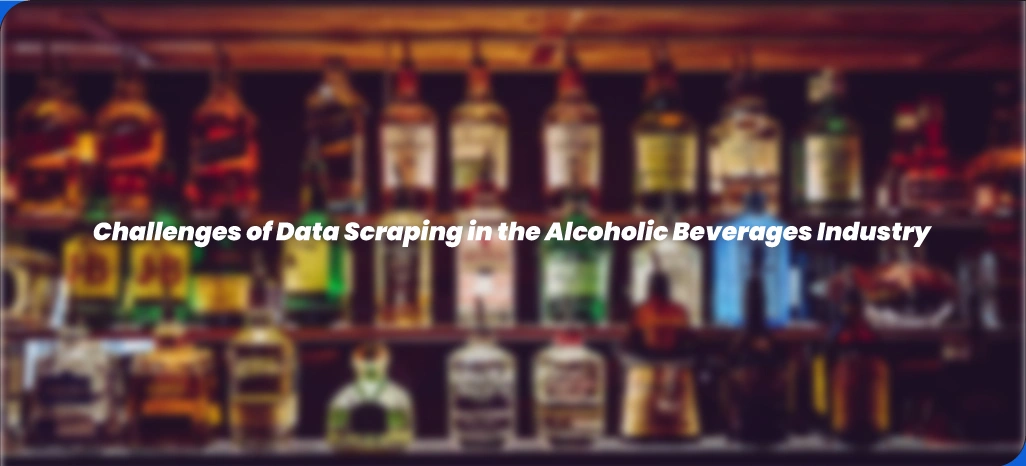
The alcoholic beverages industry is vast and constantly evolving, with consumer preferences, market dynamics, and trends shifting regularly. In such a competitive and fast-paced environment, staying ahead of the latest developments is crucial for businesses, manufacturers, and marketers in the alcoholic beverages sector. One of the most effective ways to gain these insights is through Alcoholic Beverages Industry Data Scraping. This powerful technique can provide detailed, real-time data on market trends, consumer behavior, and product performance.
Data scraping involves collecting large volumes of data from websites, social media platforms, and online databases, allowing businesses to gather crucial insights without manually sifting through endless reports. In the context of the alcoholic beverages industry, this means obtaining information on the latest product launches, consumer preferences, pricing strategies, sales performance, and even emerging trends like the growing demand for low-alcohol or alcohol-free options. By analyzing this data, companies can make informed decisions, refine their marketing strategies, and stay ahead of the competition.
The Role of Data Scraping in the Alcoholic Beverages Industry

Data scraping is pivotal in the alcoholic beverages industry. It provides real-time insights into consumer preferences, market trends, and competitor activities. This valuable data enables businesses to make informed decisions, optimize marketing strategies, and stay competitive in a dynamic market.
1. Tracking Consumer Preferences
Social trends, regional tastes, economic conditions, and health awareness shape consumer preferences in the alcoholic beverages industry. For example, there's been a growing shift toward craft beers, premium spirits, and low-calorie or low-alcohol drinks driven by health and wellness trends. Businesses can track these evolving preferences in real-time by scraping data from e-commerce platforms, social media, and review sites. Platforms like Instagram, Twitter, and TikTok provide valuable insights through user-generated content, allowing brands to stay on top of trending drinks. Analyzing customer feedback also helps businesses identify popular products and adjust their offerings. Companies can continuously monitor these trends using Alcohol Data Scraping Services. At the same time, Alcohol Industry Data Scraping allows them to adapt their products to meet consumer demand for new flavors, ingredients, and packaging strategies.
2. Understanding Regional Preferences
The alcoholic beverages market is highly segmented by region, with preferences varying across locations. Craft beer and bourbon are popular in the U.S., while gin, vodka, and wine dominate in the UK. Asia favors sake, soju, and baijiu, and Latin America leans toward tequila and rum. Data scraping helps businesses analyze regional preferences by collecting menu data from bars, restaurants, and trend reports. This aggregated data reveals emerging markets and regional variations in consumer behavior. For example, companies entering the European market can use Beverage Industry Insights to assess the demand for spirits like rum and whiskey. Drink Industry Data enables businesses to tailor their strategies to meet local tastes and optimize product offerings.
3. Monitoring Competitor Activity
Understanding what competitors are doing is essential for maintaining a competitive edge in a crowded and competitive market. Web scraping can gather data on competitor products, pricing, marketing strategies, and promotional activities. Companies can identify emerging trends, new product launches, and successful marketing campaigns by scraping product listings from e-commerce websites and monitoring competitor announcements on social media or press releases.
For example, if a competitor launches a new premium whiskey line that receives a great deal of attention on social media, this could signal an opportunity for other brands to launch similar products or adjust their marketing efforts. Scraping competitor data allows businesses to monitor price fluctuations and adjust their pricing strategies in real-time.
With Liquor Data Scraping, businesses can track various competitor insights. Additionally, Data Scraping of Wine and beer helps monitor shifts in consumer preferences and competitive moves in the beverage market.
4. Tracking Product Performance and Sales Data
Sales data is a critical indicator of a product's market performance. By scraping data from online retailers, distributor websites, and marketplaces, businesses can gather sales data for specific products, including quantities sold, revenue generated, and product rankings. This information allows brands to track their products' performance against competitors and identify which products are most successful with consumers.
Additionally, data scraping can be used to monitor trends in promotional campaigns. For example, if a particular brand is running a discount campaign or promotional event, web scraping can capture details about the campaign's success in sales and customer engagement. By analyzing these results, businesses can adjust their marketing or promotional strategies to maximize sales and customer loyalty.
5. Identifying Emerging Trends
The alcoholic beverage industry is no stranger to the rapid emergence of new trends. The market is constantly evolving from the rise of hard seltzers to the increasing popularity of non-alcoholic and low-alcohol beverages. Data scraping enables companies to identify these trends early on by tracking mentions of new products or innovations across the web.
For instance, many businesses are now focused on offering alcohol-free or low-alcohol options, driven by a growing health-conscious consumer base. Food Data Scraping can track the development of these categories, from new product launches to consumer discussions and social media mentions. This allows brands to stay ahead of the curve and introduce new products that meet the changing demands of their target market.
By scraping online review sites, industry blogs, and food and drink news platforms, businesses can analyze emerging product categories and quickly adapt their strategies to take advantage of new opportunities. Identifying these trends early gives brands the competitive advantage of being first to market with innovative products that meet evolving consumer preferences.
Benefits of Data Scraping for the Alcoholic Beverages Industry

Data scraping offers significant benefits to the alcoholic beverages industry. It enables businesses to track market trends, monitor competitor activities, understand consumer preferences, and optimize pricing strategies. This valuable data helps brands enhance their product offerings and stay ahead in a competitive market.
1. Real-Time Insights
One of the primary advantages of data scraping is the ability to collect data in real-time. In a fast-moving industry like alcoholic beverages, having access to up-to-date information allows businesses to make informed decisions quickly. Whether tracking consumer sentiment, identifying competitor activities, or monitoring pricing trends, real-time data enables businesses to act swiftly and capitalize on emerging opportunities.
2. Cost-Effectiveness
Data scraping is a cost-effective method for gathering large amounts of data. Traditionally, businesses would have to rely on market research reports, which can be expensive and often outdated. By using data scraping tools, businesses can collect current data from various online sources at a fraction of the cost, making it accessible to companies of all sizes.
3. Data-Driven Decision Making
Access to vast data allows businesses to make more informed, data-driven decisions. Whether choosing which products to launch, determining the best marketing strategy, or identifying potential growth markets, data scraping provides actionable insights that can drive business success.
4. Customization and Flexibility
Data scraping can be customized to gather specific data types most relevant to a business's objectives. Whether a company is interested in tracking specific beverage categories, analyzing price fluctuations, or monitoring competitor activities, scraping tools can be tailored to meet these needs. This flexibility makes data scraping an ideal solution for businesses in the alcoholic beverages industry that need precise, targeted data.
Challenges of Data Scraping in the Alcoholic Beverages Industry

While data scraping offers significant benefits, it also comes with its own set of challenges. One of the primary concerns is data quality. Scraped data can sometimes be incomplete, outdated, or inaccurate, which could lead to incorrect analysis and decisions. Ensuring that the right sources are scraped and the data is cleaned and validated is essential for maintaining accuracy.
Another challenge is the legal and ethical considerations surrounding data scraping. Some websites may have terms of service that prohibit data scraping, and scraping too aggressively can strain a website's resources. Businesses should be aware of these legal restrictions and ensure that their scraping practices comply with relevant laws and regulations.
Finally, website structure changes can also pose challenges for data scraping. Websites frequently update their layouts and change the structure of their data, which can break scraping scripts and result in lost or inaccurate data. Staying on top of these changes and regularly updating scraping scripts is essential for ensuring the data remains consistent and reliable.
Conclusion
The alcoholic beverages industry is an ever-changing market, and staying ahead of the latest trends and consumer preferences is critical to success. Data scraping provides a powerful tool for businesses to gather real-time insights, track emerging trends, and monitor competitor activities. By analyzing this data, companies can refine their product offerings, pricing strategies, and marketing tactics to stay competitive in a crowded market.
Whether tracking the rise of low-alcohol beverages, monitoring the popularity of craft beer, or identifying regional preferences for different types of spirits, data scraping enables businesses to make informed, data-driven decisions that support growth and innovation. However, to fully leverage the power of data scraping, companies must gather high-quality data, adhere to legal guidelines, and stay on top of website structure changes.
In the ever-evolving alcoholic beverages industry, those who harness the power of data scraping will be better equipped to anticipate shifts in consumer demand, optimize their product offerings, and build a competitive advantage in the market.
Transform your retail operations with Retail Scrape Company's data-driven solutions. Harness real-time data scraping to understand consumer behavior, fine-tune pricing strategies, and outpace competitors. Our services offer comprehensive pricing optimization and strategic decision support. Elevate your business today and unlock maximum profitability. Reach out to us now to revolutionize your retail operations!
